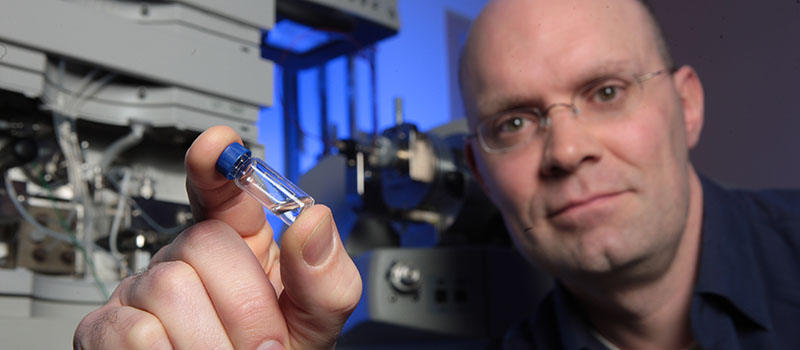
The Metabolic and Systems Biology (MSB) Division of BMBB is comprised of faculty whose research programs focus on the structure, function and regulation of macromolecules with an emphasis on integrating signal transduction, metabolism and gene expression. Research in this area is broad and encompasses such diverse topics as extracellular matrix and cell surface receptors, transporters and ion channels, signaling systems and enzyme action as well hormonal and metabolic control of gene expression. The faculty is also involved in a variety of research efforts directed towards an understanding of the molecular basis of metabolic disease. MSB faculty teach a variety of topics in the BMBB curriculum but primarily deal with those courses that emphasize the molecular aspects of cellular metabolism and its regulation.
Techniques used in MSB span the spectrum of contemporary examination, from mass spectrometry through gene microarray analysis. Proteomics yields the mass and where database information is available, the sequence and/or identity of peptides. Often such analysis can allow the investigator to identify proteins from complex mixtures without purification or enrichment. Moreover, for those cases where covalent modifications are involved (phosphorylation, acylation, oxidation, gamma-carboxylation, etc.) proteomics can reveal patterns of modification in response to a particular cellular stimulus or genotype. Gene microarray analysis allows for the simultaneous assessment of thousands of genes by the use of dual-probe hybridization. Human, mouse and yeast microarrays are currently being used by investigators to detect changes in gene expression in response to hormonal or metabolic signals. Expansion of proteomics and microarray technology through the initiative of MSB faculty has allowed for new opportunities for the study of signal transduction and gene expression. The two technologies in tandem represent a significant advancement in our technologies and afford MSB investigators unmatched opportunities for biological exploration.
Primary Members
| Faculty photo | Faculty research interests |
|---|---|

| Mechanism of insulin action; regulation of gene expression by lipids; lipid transporters and lipid binding proteins; obesity and metabolic regulation. |

| Functional proteomics, Protein posttranslational modification |

| We develop and deploy metabolomics technologies to reveal the roles of intermediary and lipid metabolism in integrated physiological homeostasis using both genetically engineered mice and human subjects. |

| Molecular basis of Muscular Dystrophy; Role of actin in cell polarity. |

| The development and application of mass spectrometry-based tools to study proteins and proteomes. |

| Biological networks that coordinate metabolism and growth. |

| Douglas Mashek (Division Director) Lipid metabolism and metabolic diseases. |

| Carcinogen metabolism and exposure. |

| Post-translational modifications |

| Mechanism and regulation of amino acid neurotransmission in mammalian brain. Mechanism of amino acid transport in mammalian brain. |

| Function of RNA-binding proteins, Non-coding RNAs, Post-transcriptional gene regulation mechanisms |
Secondary members
| Faculty photo | Faculty research interests |
|---|---|

| Gene structure and regulation. |

| Gene expression; protein phosphorylation cascades. |

| Cell adhesion; protein-protein/carbohydrate interactions. |

| Eukaryotic molecular biology; hormone action; gene expression. |

| Molecular dynamics in muscle. |
Teaching
MSB faculty participate in a broad spectrum of teaching opportunities for students. Besides the general curriculum which has as its foundation the cores series for either undergraduate (BioC 4331 and 4332) graduate (8001 and 8002) or professional (BioC 6100 and 6101) students, and participating in courses taught through other divisions of BMBB, specialized topics courses taught primarily by MSB faculty include:
BioC 5231; Membrane Biochemistry
BioC 5401: Advanced Metabolism and its Regulation
BioC 5444: Biochemistry of Muscle
BioC 8007: Biochemistry of the Extracellular Matrix
BioC 8216: Topics in Regulatory Biochemistry
Metabolic and Systems Facilities
Facilities
Center for Mass Spectrometry and Proteomics
Director: Timothy J. Griffin
Manager: Julie Kirihara